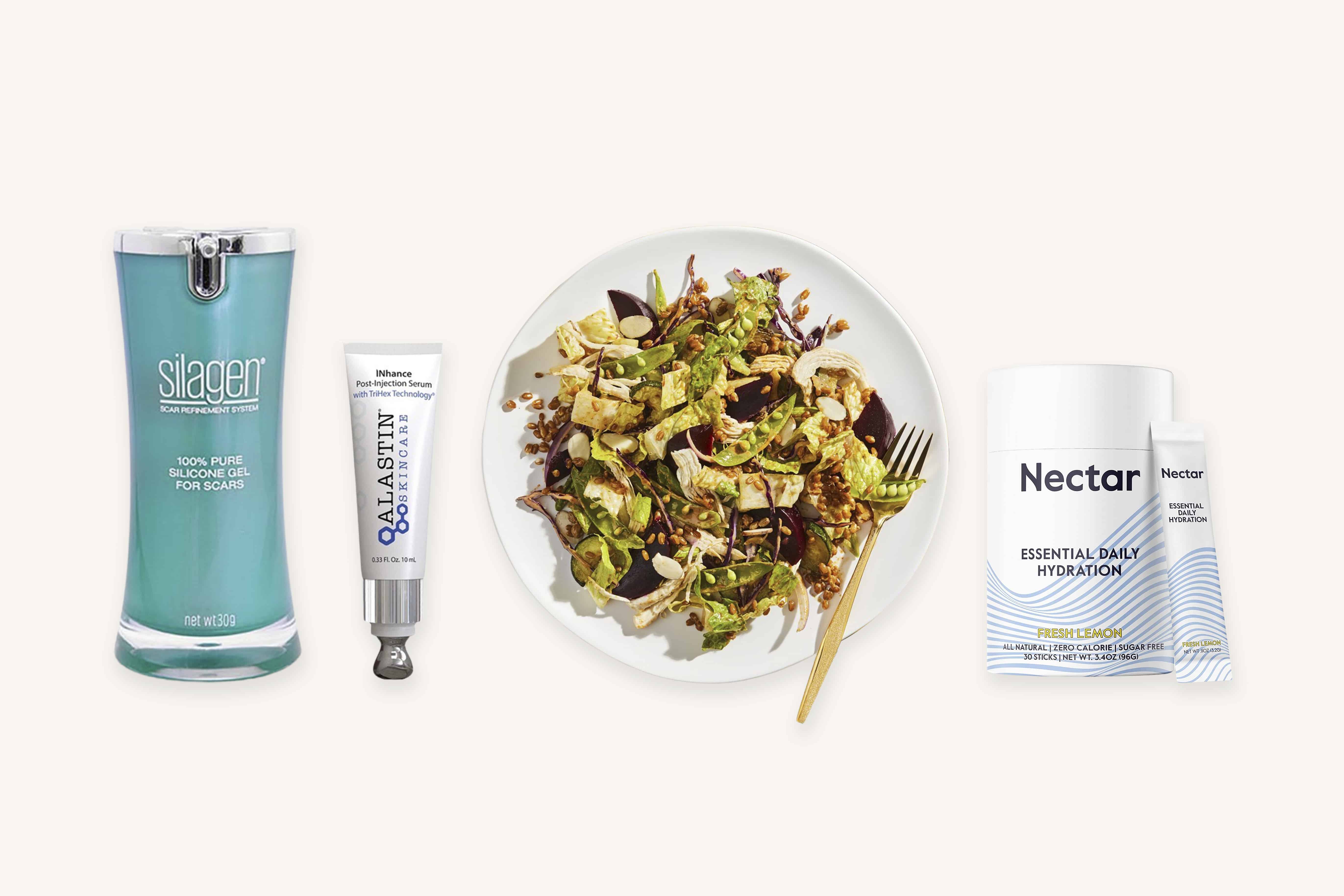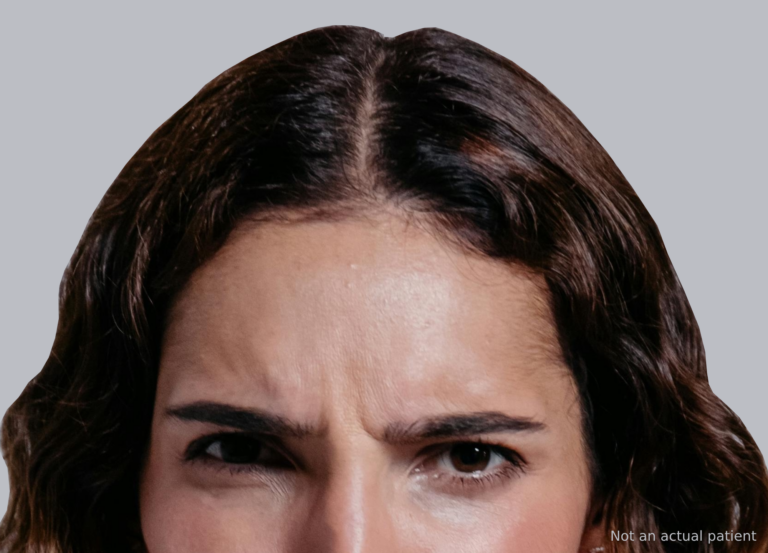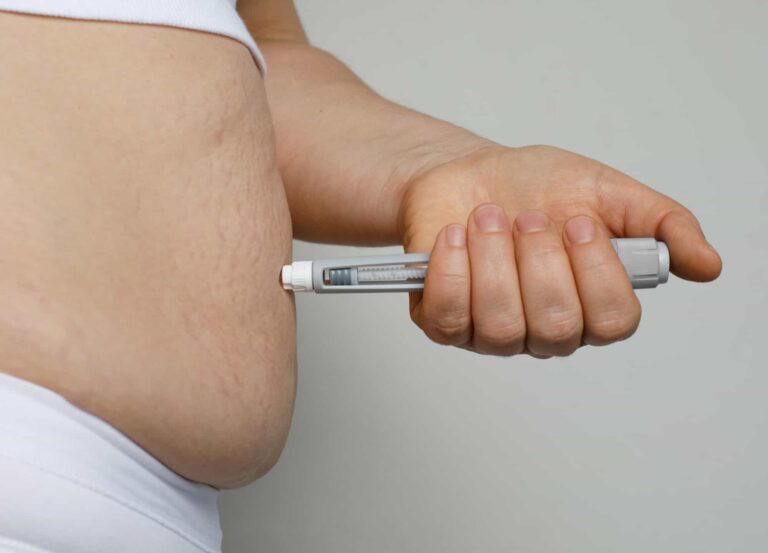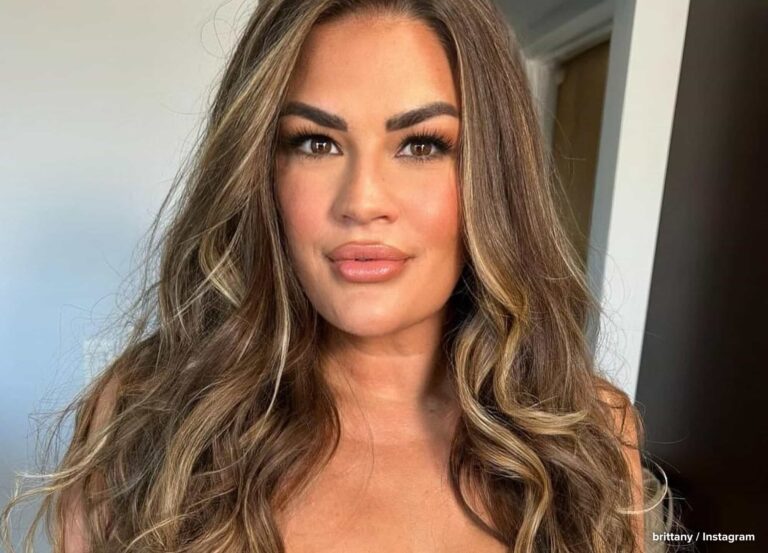It’s the surgical equivalent of a swag bag—the post-op recovery kit, flush with products aiming to prep and repair skin surrounding surgery; vitamins, to relieve bruising; wellness-boosting snacks and sips; and all manner of scar-improving agents. While many surgeons provide these goodies gratis—as part of their surgical fee, really—for others, these are merely as-you-wish recommendations for a smooth recovery. From BBL recovery kit essentials to post breast augmentation must-haves, top doctors share the exact items they encourage patients to use before and after plastic surgery, to make their results shine.
Pre- and postsurgical skin care
Using doctor-curated cleansers and serums in the weeks before and after surgery can help strengthen the skin in advance of procedures and take the guesswork out of what’s safe and appropriate to apply during the healing phase, when skin is often at its most vulnerable.
“While we’ve always given patients a medical care package for immediate postsurgical care after rhinoplasty—gauze, tape, peroxide, nasal saline spray, bacitracin—we’ve recently started providing patients with a less traditional goodie bag, which includes luxury skin-care products specifically curated for post-rhinoplasty healing. Some of the items in our bag currently: IT Cosmetics Confidence in a Cleanser, an ultra-hydrating cleansing serum that works for even the most sensitive post-op skin. After rhinoplasty, patients are advised to use a gentle cleanser, like this one, with a washcloth, because the cast over the nose has to be kept dry. Talika Eye Therapy Patches help hydrate and soothe the under-eye area after rhinoplasty, minimizing the look of bruising and helping to more quickly resolve under-eye swelling. Embryolisse Stick Lèvres is a great moisturizing lip balm. After rhinoplasty, patients can expect to be stuffy, like from a bad cold, for up to two weeks—and during this time of post-op congestion, they end up breathing mainly through their mouths, particularly at night, which leads to dry, cracked lips. This shea butter lip balm is deeply nourishing without being sticky.” —Dr. Dara Liotta, a board-certified facial plastic surgeon in New York City
“For the month prior to surgery, we believe that preparing the skin on the outside helps get it ready for a surgical procedure on the inside. Since my partner and sister, Dr. Morgan Rabach, is a dermatologist, she almost always sees my surgical patients for a consultation, to help them prep their skin. Most patients end up on a regimen of SkinMedica TNS Essential Serum, which contains a bunch of antioxidants and growth factors, to optimize healing, ISDIN Isdinceutics K-OX Eyes, and a medical-grade sunscreen that is a physical blocker, like EltaMD UV Physical Broad Spectrum SPF 41.” —Dr. Lesley Rabach, a board-certified facial plastic surgeon in New York City
“Alastin makes a product called INhance, which was designed for after filler injections, but I like using it after small procedures like blepharoplasty, scar excisions, lip lifts, and nasal-base narrowing procedures. [It contains a peptide blend called] TriHex Technology, which speeds recovery, in a topical cream. Another amazing product that I use before surgery on liposuction patients is Alastin TransFORM Body Treatment, which is amazing at building elastin before a liposuction procedure. It was designed to be used starting immediately after surgery, but I actually give it to my patients to use on the areas that will be liposuctioned for two weeks before surgery, to help build elastin and remodel collagen, which improves skin elasticity after lipo. They also use it [for] four weeks after—and they love how it makes their skin feel.” —Dr. Jo An Monaco, a board-certified plastic surgeon in New York City
“We give patients a kit for before surgery, with Hibiclens, a hospital-grade antiseptic/antimicrobial soap for the shower, which they use two days before surgery and for a week after surgery. We also include a hospital-grade hand sanitizer called Avagard, to use frequently during the recovery period.” —Dr. David Shafer, a board-certified plastic surgeon in New York City
Vitamin therapy
While plastic surgeons typically require patients to avoid alcohol; NSAIDs; and certain blood-thinning supplements, like vitamin E, garlic, and fish oil, two weeks prior to surgery, most also recommend adding a few key homeopathics known to help with healing.
“For recovery from small procedures, like fillers, and surgical procedures, like blepharoplasty, facelifts, and rhinoplasty, I give all my patients a surgery pack by Silagen or Alpine Pharm that contains arnica montana and bromelain—the standard agents we have been using for years to help prevent surgical bruising. I have my patients take these tablets 24 hours before surgery and then immediately after for a couple of days. They speed the remodeling process that is needed with surgery.” —Dr. Monaco
“I have a compounded arnica/bromelain/vitamin K that I have all patients start taking two to four weeks before surgery and continue taking for two weeks after surgery. I also have them take a supplement with antiinflammatory turmeric, starting two weeks after surgery, to further reduce swelling. Since turmeric is a blood thinner, I don’t introduce it until we’re two weeks out from surgery.” —Dr. Sheila Nazarian, a board-certified plastic surgeon in Beverly Hills, California
“One week before surgery, we have patients start taking Boiron Arnica montana plus bromelain—fresh pineapple is an enjoyable source of bromelain, or they can take it in pill form. They continue the supplements for a week to 10 days after surgery.” —Dr. Rabach
Related: 12 Facelift Recovery Tips to Know
Nutritional support
Nutritionally balanced meals and sufficient hydration make the body work better—particularly after an immune-system-taxing surgery—but it’s not always easy to load up on these essentials. That’s why plastic surgeons like to send patients off with these samples and suggestions.
“I encourage my patients to focus on optimizing nutrition in the pre- and postoperative periods. Adequate intake of lean and plant-based protein stabilizes blood sugar while supporting wound healing and collagen production. Omega 3 fatty acids and antioxidants can help reduce inflammation and limit bruising. Regular intake of both prebiotics and probiotics supports the immune system and can help stave off any discomfort that may occur as a side effect of antibiotics. Adequate hydration is essential to all the body’s systems and is particularly critical to maintaining healthy skin as well as sustaining metabolism and digestion, which can slow a bit in the days after surgery. I’ve found that nutritionally balanced meal plans, including Eat Sunny and Sakara, help my patients stay nourished with ease during the pre- and postoperative periods by keeping whole, nutritionally dense foods accessible.” —Dr. Adam Kolker, a board-certified plastic surgeon in New York City
“After surgery, I encourage patients to have a high-protein diet and to drink often. One of my favorite hydration drinks is coconut water. I stress the need for protein with vegetarians and vegans, in particular.” —Dr. Melissa Doft, a board-certified plastic surgeon in New York City
“I’ve recently started exploring Eat Sunny meals for surgery patients, which can be delivered directly to their door. This company has figured out a great blend of foods that are rich in collagen, to help boost the body’s collagen production for a better surgical result. This is especially crucial after a facelift or a neck lift on someone in their 50s or 60s, as these patients have less endogenous [internal] collagen and elastin production.” —Dr. Monaco
“Two of the most important things to help with healing after surgery are staying hydrated and getting adequate protein intake. All our patients get Nectar hydration packets, which provide the necessary electrolytes. For larger surgeries, like tummy tucks, I will have patients take Juven or Ensure Max, which are both high-protein drinks, to help with healing and swelling. After any kind of surgery, patients usually experience constipation, so we always provide some Miralax, to help with that. Many also have sore throats from the endotracheal tube used during anesthesia—for this we provide Ricola throat lozenges.” —Dr. David Sieber, a board-certified plastic surgeon in San Francisco
“We recommend drinking Muscle Milk protein shakes for two weeks before and after surgery. The added protein and nutrients are essential for healing. We give patients a starter pack with the shakes and then recommend they order a case from Costco.” —Dr. Shafer
Scar management
Silicone is a superhero of the scar-reduction realm, with the power to render scars nearly invisible over time. Some surgeons find silicone gels most effective, while others prefer silicone-based strips for the no-nonsense ease they provide patients.
“I use Silagen Scar Refinement System, a pure silicone gel, [which I find] helps propagate into a scar better than a cream or ointment formulation. I have patients use this, starting at 21 days post-surgery. This is when wound remodeling has entered the strength stage and the wound has more tensile strength than a fresh surgical scar, so [there’s little to no] likelihood of it opening up. I always instruct my patients to massage the Silagen gel into their scar for a couple of minutes—this massage physically breaks down the scar while the gel is chemically remodeling it. My patients understand they’ll be using the Silagen for at least three months after surgery. Everyone is given a lecture on sun protection for scars and told that scars can mature and change for up to 12 months after surgery. I also love Silagen scar strips, which are great after breast augmentation and tummy tucks, especially for patients who don’t have time to worry about applying a scar gel twice a day. The silicone sheeting will do all the work, passively. My mommy makeover patients almost always choose the silicone sheeting strips, because they apply them after a morning shower and forget about them until their next shower. Silagen even sells premade anchor [and lollipop] scar versions, for breast lift procedures.” —Dr. Monaco
“I have my deep plane facelift patients use SkinMedica Scar Recovery Gel with Centelline, twice daily, on their incisions, starting the day after surgery, over the stitches. They continue using the scar gel for six weeks, twice daily, along with frequently applied sunscreen and wear hats, at all times, when outside.” —Dr. Rabach
“With every surgery, we offer a complimentary consultation with our laser specialists plus three complimentary energy treatments on post-op incisions, to maximize healing. Treatments include Vbeam pulsed dye laser, to reduce redness and scarring, radiofrequency, to tighten skin and stimulate collagen, fractionated CO2 laser, to smooth scars and reduce pigmentation, and microneedling, to help soften scar tissue and improve appearance.” —Dr. Shafer
Related: 9 Breast Augmentation Recovery Tips
Post-op compression garments
Since consistent compression is key to amazing outcomes following breast and body procedures, plastic surgeons aim to provide garments that blend quality and comfort.
“Following body contouring procedures, surgical garments provide compression, which will help remodel the tissue and remove fluid after liposuction, buttocks augmentation, or a tummy tuck. I prefer surgery-grade garments that are specifically for stage 1, immediately after surgery, and stage 2, which is after a few weeks, when the majority of the swelling is gone but compression is still needed to get to the final result. These stage 2 garments typically have more movement and elasticity—I tell patients that they are equivalent to Spanx.” —Dr. Monaco
“For any procedure that requires compression garments, I’m a big fan of Design Veronique. They are on the pricey side, but they’re more durable than many competitors and have many adjustments available so that they provide an excellent fit for most patients.” —Dr. Darren Smith, a board-certified plastic surgeon in New York City
“For breast surgery, we recommend a supportive postoperative bra. I love the one by Masthead. It is very comfortable, and a portion of each sale is donated to breast cancer research. The patient is placed in the bra at the end of surgery and wears it for six weeks, day and night. Many continue to wear it [beyond that point], as they find it very comfortable.” —Dr. Doft











